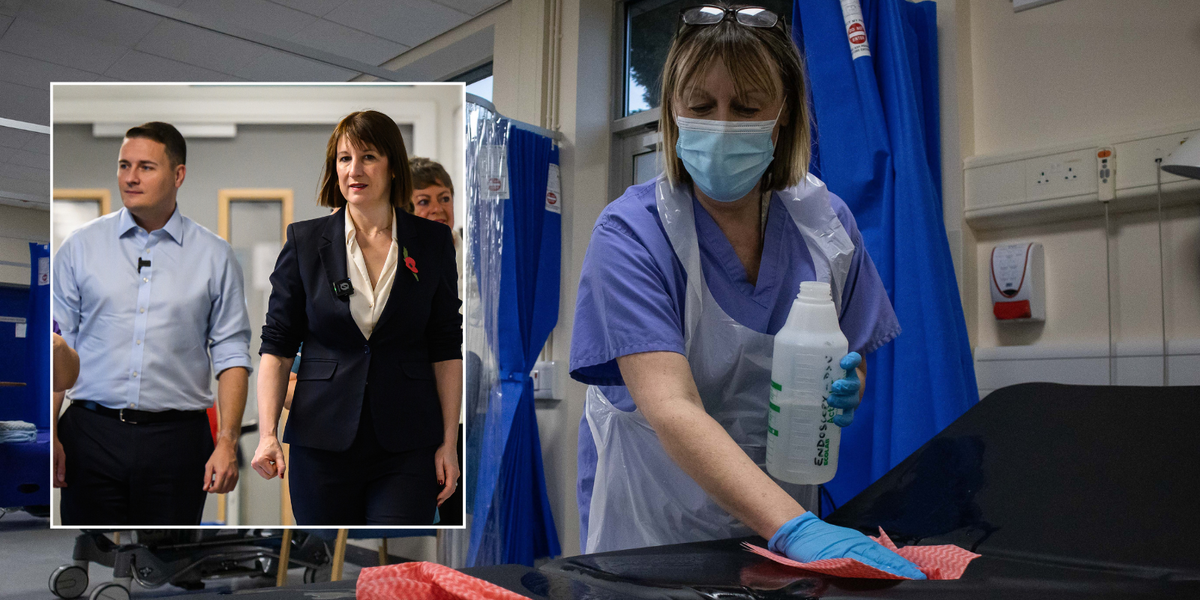The NHS Crisis: A Tale of Two Nations
In a recent address at St George’s Hospital in Tooting, Chancellor Rachel Reeves reiterated her commitment to revitalizing the National Health Service (NHS), which she described as "broken" after "14 years of Conservative damage." Her remarks come amid a backdrop of increasing scrutiny regarding the performance of the NHS in Wales, where Labour has been in control since devolution in 1999. Critics argue that the Welsh NHS is facing its own severe challenges, raising questions about the effectiveness of Labour’s governance in the region.
The State of the NHS in Wales
Wales is currently grappling with alarming statistics regarding NHS waiting lists. Reports indicate that one in four individuals in Wales is on a waiting list for treatment, the highest rate across the UK. In stark contrast, only four percent of patients in England face similar delays. The average waiting time for hospital treatment after referral in Wales stands at 21.8 weeks, significantly longer than the 14.9 weeks experienced in England. These figures have prompted Welsh residents to voice their concerns, questioning Labour’s ability to manage the health service effectively.
Sam Rowlands MS, the Welsh Conservative Shadow Health Minister, has been vocal about what he describes as Labour’s "fundamental mismanagement" of the Welsh NHS. He pointed out that despite receiving a £1.20 uplift from the UK Government for every £1 spent per head in England, the Labour Welsh Government has failed to allocate the full amount to the NHS, depriving it of essential funding.
Public Sentiment and Criticism
The public’s frustration is palpable. Welsh resident Dylan Jenkins expressed his discontent, stating, "Labour will be remembered as the government that led the NHS to its worst crisis in history in Wales." This sentiment is echoed by others who have experienced the repercussions of long waiting times and inadequate ambulance services. Helen Fawcett from Monmouthshire recounted a harrowing experience where her mother waited 13 hours for an ambulance after suffering a broken hip. Such incidents highlight the urgent need for reform and improvement within the Welsh health system.
Labour’s Response
In response to the mounting criticism, the Welsh Government has defended its record, emphasizing the high demand placed on the NHS, which handles over 2 million contacts each month in a country of just 3.1 million people. They acknowledge the pressures faced by the health service but assert that it continues to provide life-saving care daily. The government claims to have reduced long waiting times by over 65% since their peak in 2022 and has recently announced an additional £28 million to address the longest waits. However, many remain skeptical about the effectiveness of these measures.
Controversial Spending Decisions
Adding fuel to the fire, the Welsh NHS has recently come under scrutiny for its decision to recruit an ‘Equality, Diversity and Inclusion Champion’ with a salary ranging from £105,504 to £139,882 per annum pro rata. Critics argue that this expenditure could instead fund the salaries of multiple nurses, highlighting a perceived misallocation of resources within the NHS. Reform MP Rupert Lowe has called for the elimination of such "nonsense roles," questioning the overall cost of diversity positions within the health service.
The Political Landscape
The ongoing debate surrounding the NHS is not just a matter of healthcare; it is deeply intertwined with political narratives. Rachel Reeves’ assertions that the Conservatives have "broken" the NHS are seen by many as a strategic move to prepare the public for potential tax increases in the upcoming budget. Meanwhile, Keir Starmer’s earlier claims that Wales served as a "blueprint" for his government have become increasingly contentious, with the Labour leader refraining from repeating this assertion amidst the current crisis.
Conclusion
As the NHS faces unprecedented challenges, the divide between England and Wales becomes increasingly pronounced. While Rachel Reeves and the Labour Party aim to position themselves as the saviors of the NHS, the situation in Wales raises critical questions about their track record. With waiting lists soaring and public dissatisfaction growing, the path to recovery for the NHS will require not only political will but also effective management and a commitment to addressing the root causes of the crisis. The future of the NHS, both in England and Wales, hangs in the balance as stakeholders grapple with the pressing need for reform and accountability.
